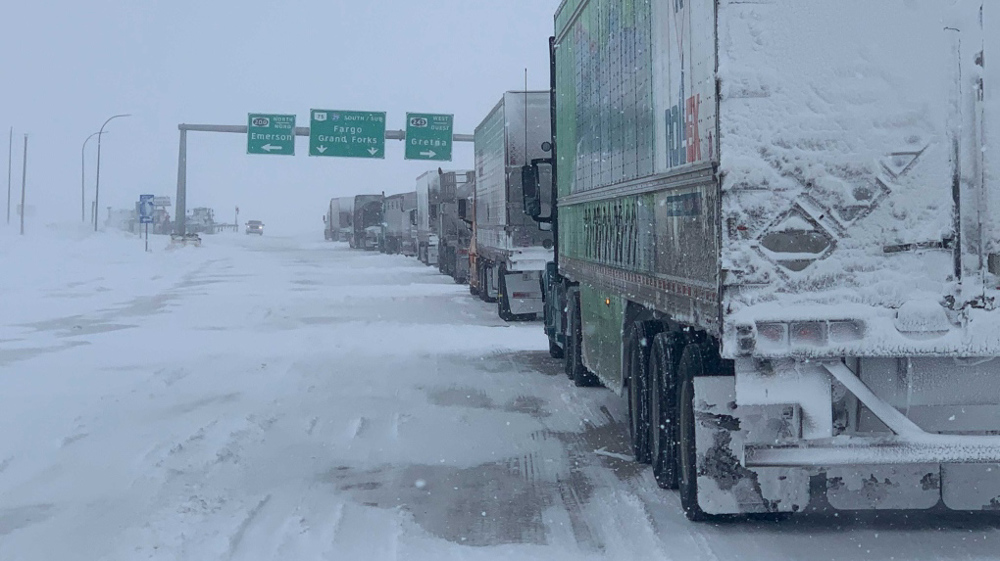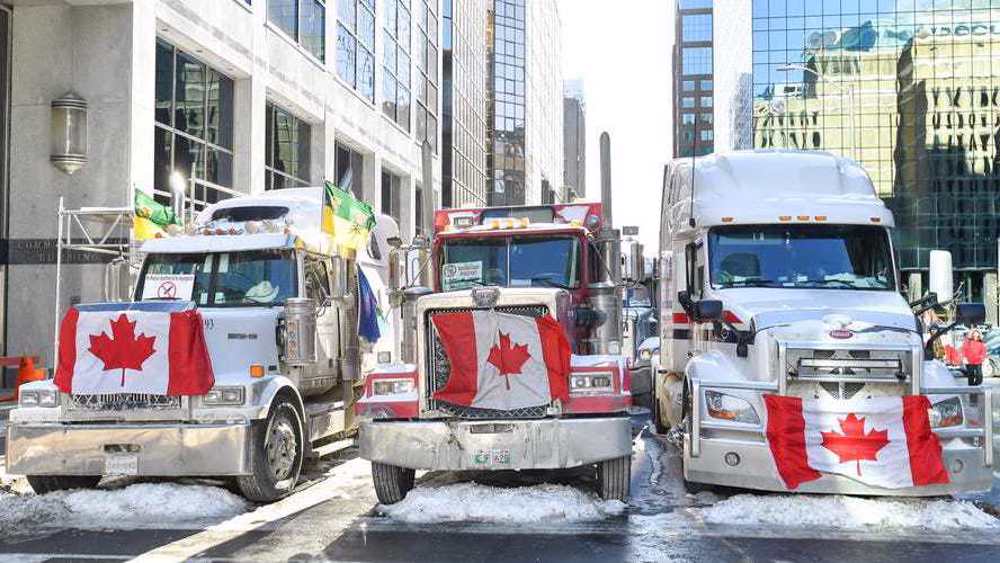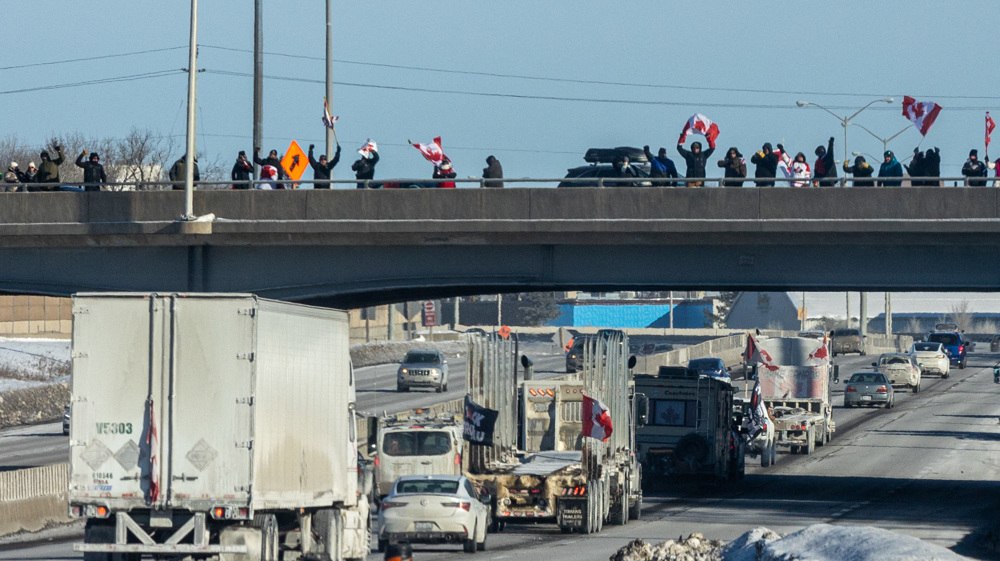Canada truckers extend border blockade with US, inspire protests abroad
Truck drivers in Canada have blocked a key border crossing with the United States as anti-government protests against coronavirus curbs and vaccine mandates gain momentum.
Canadian media reports said protesters in semi-trailer trucks, farm equipment and other vehicles had shut down highway lanes that connect Canada’s central province of Manitoba to the US, threatening economic disruption.
CBC News said about 50 vehicles, which also include snowplows and construction machinery, had blocked off both northbound and southbound lanes on Highway 75 in Manitoba.
The blockade would seriously bear upon the central Canadian province’s economy as about 80 percent of Manitoba exports to the US and Mexico is transported by truckers.
The two previous border obstructions — under ‘Freedom Convoy’ protests — have already impacted business across the country, with the key Ambassador Bridge linking Ontario and Detroit having been out of service for several days and a second crossing in the western province of Alberta blocked for days.
The demonstrations began last month against the recent vaccine mandate requiring truckers entering Canada to either be fully vaccinated or face testing and quarantine requirements.
Other protesters have joined to rail against mask mandates, lockdowns, restrictions on gatherings and other COVID-19 preventative efforts.
Citing supply shortages, Ford said it was forced to slow down production at factories in Canada while some Stellantis factories in the US and Canada halted work. General Motors also cancelled several shifts and Toyota said its plants were impacted by the massive protest.
Addressing reporters outside the House of Commons, Canada’s Prime Minister Justin Trudeau once again called the blockades "unacceptable" and said he was working with authorities across the country to bring them to an end.
"This is hurting communities across the country," Trudeau asserted.
Police in the Canadian capital, Ottawa, announced that they were bringing in reinforcements, issuing more arrests and tickets, and stepping up truck towing operations in a bid to break the impasse that has paralyzed the bustling city.
Defying police orders and official government warnings, protesters were hunkering down and taking pride in how their two-week protest had grown into an international movement, from New Zealand to France and Belgium.
Protests spread to New Zealand, France
Inspired by the Canadian truckers’ protest, activists in New Zealand have camped on the lawns of the country’s parliament in the capital Wellington for four days.
An anti-vaccine protest turned violent on Thursday in the capital city, with police clashing with demonstrators on the grounds of parliament and more than 120 people arrested.
Media reports said the parliamentary precinct has been declared closed to the public but the measure has not been strictly enforced and the number of protesters on the lawns surged from about 250 to around 1,500 on Friday.
"The way the police handled us has shocked us all to the core," a protester was quoted as saying, adding that the activists remain committed to their goal of ending vaccine mandates.
"What they did yesterday was way beyond any of our expectations. Brutal, absolutely brutal."
French protesters also planned to converge Friday evening on Paris, with some aiming to move onwards to the Belgian capital of Brussels.
Paris police sought to prevent the demonstration, saying they would ban the so-called ‘Freedom Convoys’ and would stop roads from being blocked, threatening hefty fines or jail. Belgian authorities vowed similar action.
US urges Canada to gag protests
The administration of US President Joe Biden said Thursday that Canada should use federal powers to stop the growing economic disruption caused by the blockage of US-Canada trade routes.
US Homeland Security Secretary Alejandro Mayorkas and Transportation Secretary Pete Buttigieg called on their Canadian counterparts “to use federal powers to resolve this situation at our joint border.”
“US and Canadian border and customs authorities are working with great urgency to ensure the continued flow of goods and services across our international border, leveraging alternative land routes, as well as air and sea options,” they said.
Canadian federal ministers have called the blockade illegal and asked protesters to return home.
VIDEO | Australians rally for Gaza ahead of Christmas festivities
VIDEO | Attacks on Sana'a
Iran reports further drop in annual inflation rate in December
Israel indicts two settlers over suspected spying for Hezbollah
Iran: US airstrikes on Yemen war crimes, violation of international law
Yemeni armed forces down F-18 fighter jet, repel US-UK attack: Spokesman
Iran warns against US-Israeli plot to weaken Muslims, dominate region
VIDEO | Public uproar in US against Israeli regime












 This makes it easy to access the Press TV website
This makes it easy to access the Press TV website